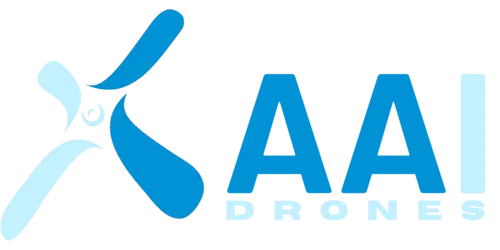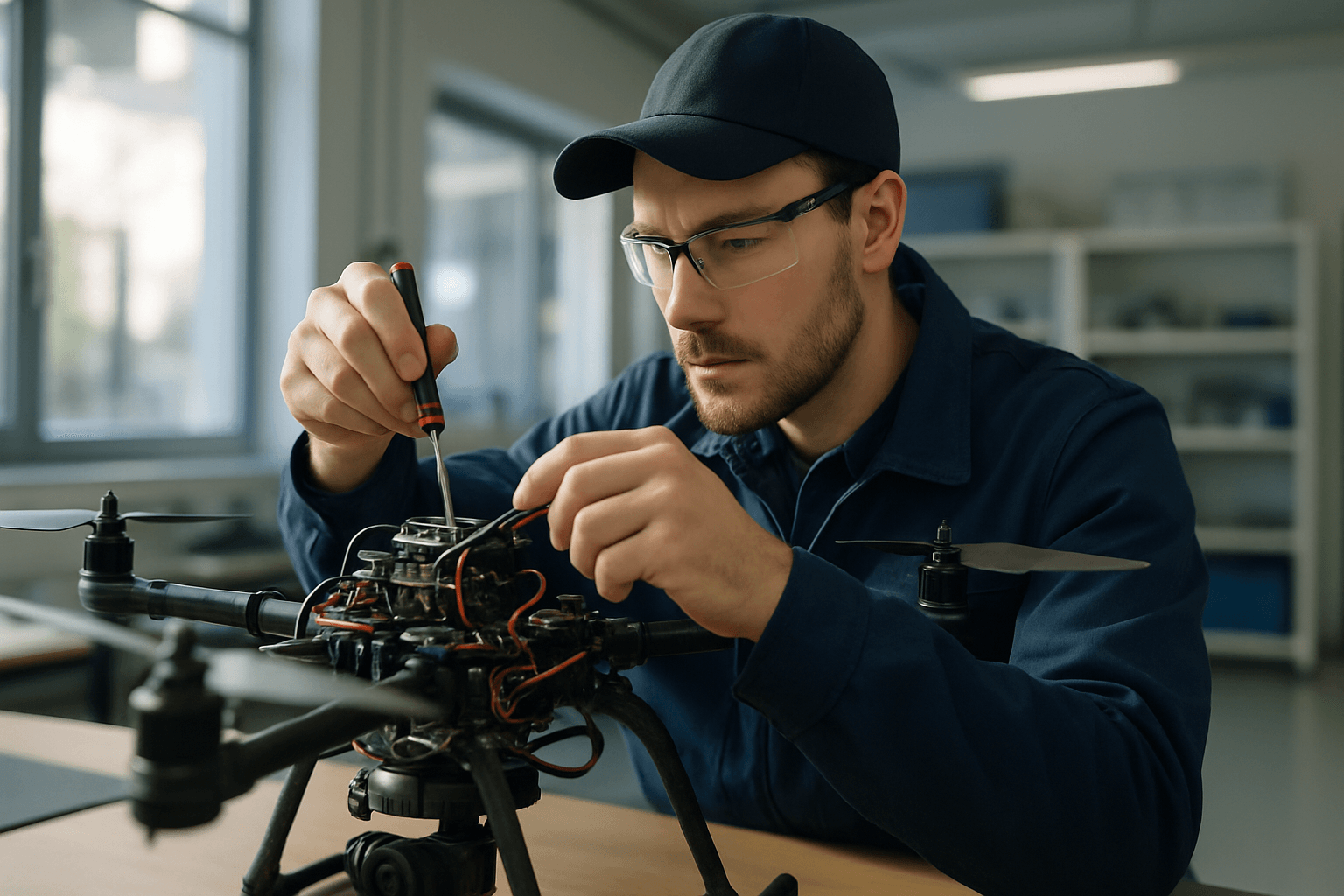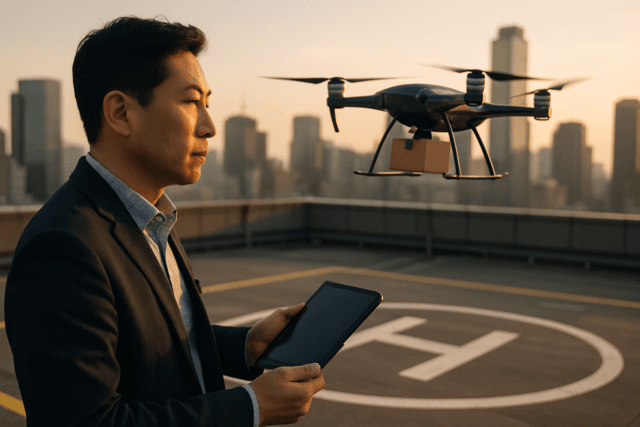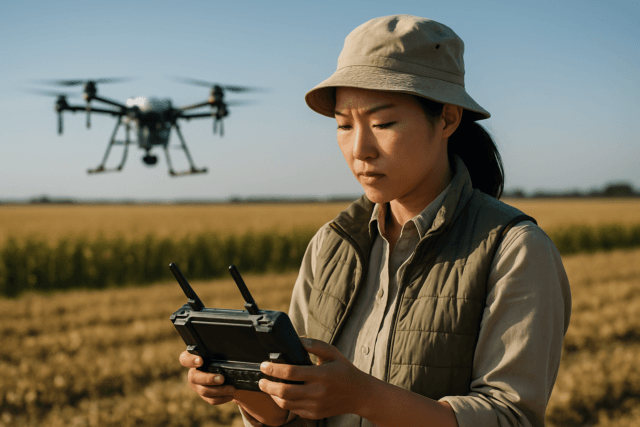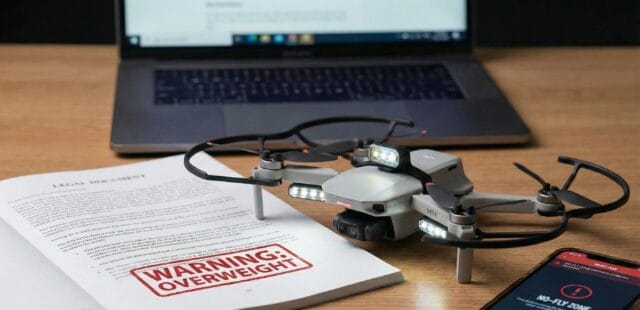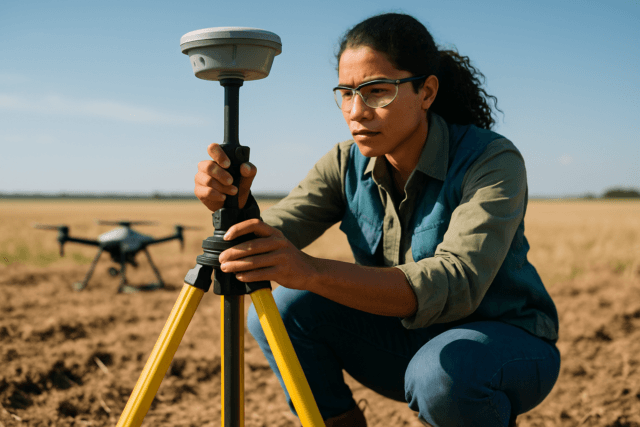The drone industry is taking off, and with it comes a growing demand for skilled technicians to keep these aerial vehicles in top condition. If you’re fascinated by technology, have a knack for problem-solving, and are looking for a career with exciting potential, becoming a drone technician in the UK could be the perfect path for you.
This guide will provide a comprehensive overview of what it takes to become a successful drone technician, covering everything from essential skills and qualifications to job responsibilities and salary expectations.
What Does a Drone Technician Do?
A drone technician, also known as an unmanned aerial vehicle (UAV) technician, specialises in the maintenance, repair, and operation of drones. They ensure that these sophisticated machines function safely and efficiently across various applications. Their work is hands-on, requiring a blend of technical expertise and practical skills.
Key Responsibilities:
- Maintenance and Repair: Conducting regular maintenance, diagnosing malfunctions, and repairing or replacing defective components. This includes both hardware and software issues.
- Inspections: Performing pre-flight and post-flight inspections to identify potential problems and ensure airworthiness.
- Troubleshooting: Identifying and resolving technical issues related to drone performance, including problems with GPS, battery life, flight control, and more.
- System Upgrades: Installing and configuring new drone technology, including sensors, control systems, and software updates.
- Documentation: Maintaining detailed records of all repairs, maintenance procedures, and modifications performed on drones.
- Compliance: Ensuring that all work adheres to aviation regulations, safety standards, and manufacturer guidelines.
- Collaboration: Working with engineers and other technical staff to implement upgrades, troubleshoot complex problems, and improve drone performance.
- Assembly: Constructing drone systems from scratch according to technical schematics and assembly instructions.
Diverse Applications:
Drone technicians support a wide array of drone applications, including:
- Aerial photography and videography
- Surveillance and security
- Delivery services
- Agriculture (crop monitoring, spraying)
- Infrastructure inspection (power lines, bridges)
- Emergency response (search and rescue, firefighting)
- Military and law enforcement
Skills Needed to Become a Drone Technician
To excel as a drone technician, you’ll need a combination of technical skills, problem-solving abilities, and personal attributes.
Technical Skills:
- Electronics Knowledge: A strong understanding of electronic components, circuits, and systems is essential for diagnosing and repairing drone hardware.
- Mechanical Aptitude: Familiarity with mechanical systems and tools is necessary for assembling, disassembling, and repairing drone structures.
- Software Proficiency: Drone technicians need to be comfortable with software updates, debugging, and configuring drone control systems.
- Diagnostic Skills: The ability to use diagnostic tools and equipment to identify and troubleshoot problems is crucial.
- Soldering and Wiring: Expertise in soldering and wiring techniques is required for repairing and modifying electronic components.
- Understanding of Flight Control Systems: Knowledge of flight control systems, including GPS, sensors, and navigation systems, is vital for ensuring stable and reliable flight.
- Knowledge of UAV Regulations: Technicians must stay up-to-date with the ever-evolving regulations surrounding drone operation.
Soft Skills and Personal Attributes:
- Problem-Solving Skills: The ability to think critically, analyze complex problems, and develop effective solutions is essential.
- Attention to Detail: Drone technicians must be meticulous and detail-oriented to ensure accuracy and safety in their work.
- Communication Skills: Clear and effective communication is necessary for collaborating with colleagues, explaining technical issues to clients, and documenting work.
- Manual Dexterity: Good hand-eye coordination and fine motor skills are important for working with small components and tools.
- Technical Aptitude: Drone technicians should have a passion for technology and a willingness to learn new skills and stay updated with industry advancements.
- Safety Consciousness: A strong commitment to safety is paramount, as drone technicians work with potentially hazardous equipment and systems.
- Logical Thinking: The ability to approach problems logically and systematically is crucial for effective troubleshooting and repair.
Qualifications and Training
While specific requirements may vary depending on the employer and the nature of the job, there are several educational paths and certifications that can help you launch your career as a drone technician in the UK.
Educational Background:
- Associate Degree/HND: An associate degree or Higher National Diploma (HND) in electronics, electrical engineering, aviation technology, or a related field provides a solid foundation in the technical skills required for the role.
- Bachelor’s Degree: A bachelor’s degree in a relevant field, such as aerospace engineering or mechatronics, can enhance your career prospects and open doors to more advanced positions.
- Vocational Training: Completing a vocational training program or apprenticeship in drone repair and maintenance can provide valuable hands-on experience and industry-specific knowledge.
- Relevant High School Courses: If you’re still in high school, focus on courses in mathematics, science (physics, chemistry), computer science, and technology to prepare for a career as a drone technician.
Certifications and Licenses:
- A2 Certificate of Competency (A2 CofC): This certification allows you to fly drones in the A2 subcategory of the Open Category, which permits operations closer to people under controlled conditions. It typically involves passing a theory exam through a CAA-approved training provider.
- General Visual Line of Sight Certificate (GVC): The GVC is required for more complex drone operations that fall under the Specific Category. It involves completing a training course and passing both a theory and practical exam.
- Federal Aviation Administration (FAA) Part 107 Certificate (USA): While primarily for the US, holding an FAA Part 107 certificate can demonstrate a commitment to understanding aviation regulations and safety practices.
- Unmanned Aircraft Systems (UAS) Repair and Maintenance Certification: Obtaining a certified UAS repair and maintenance certification can significantly enhance your credentials and demonstrate your expertise to potential employers.
Training Courses and Programs:
Several colleges and training providers in the UK offer programs specifically designed to prepare individuals for careers in the drone industry. These programs cover a range of topics, including:
- Drone technology and systems
- Electronics and mechanics
- Flight control and navigation
- Maintenance and repair procedures
- Aviation regulations and safety standards
- Software and firmware updates
- Troubleshooting and diagnostics
Finding Drone Technician Jobs in the UK
Drone technicians can find employment in various industries and organizations, including:
- Drone Manufacturers: Companies that design and produce drones often hire technicians to assemble, test, and repair their products.
- Drone Repair Services: Specialized drone repair shops provide maintenance and repair services to individuals and businesses that use drones.
- Commercial Drone Operators: Companies that use drones for aerial photography, surveying, inspection, and other commercial applications employ technicians to maintain their fleets.
- Government Agencies: Government agencies, such as law enforcement, emergency services, and environmental protection agencies, use drones for various purposes and require skilled technicians to support their operations.
- Military: The military utilizes drones extensively for surveillance, reconnaissance, and combat operations, creating opportunities for drone technicians within the armed forces.
- Self-Employment: Experienced drone technicians can also start their own businesses, offering repair and maintenance services to local clients.
Job Boards and Online Resources:
- Indeed: A popular job board with a wide range of drone technician positions across the UK.
- LinkedIn: A professional networking platform where you can connect with potential employers and find job postings.
- Glassdoor: A website that provides salary information, company reviews, and job listings.
- Totaljobs: A UK-based job board with a focus on skilled trades and technical roles.
- AgCareers.com: A specialized job board for careers in agriculture, including drone technician positions in the agricultural sector.
Networking:
Attending industry events, joining online forums, and connecting with professionals in the drone industry can help you learn about job opportunities and build valuable relationships.
Salary Expectations for Drone Technicians in the UK
Salaries for drone technicians in the UK can vary depending on experience, qualifications, location, and the specific industry. However, here are some general guidelines:
- Average Salary: The average drone technician salary in the UK is around £30,000 to £55,000 per year.
- Entry-Level: Entry-level positions may start at around £25,000 per year.
- Experienced Technicians: Experienced technicians with specialized skills and certifications can earn upwards of £55,000 per year.
- Freelance Drone Pilot: a freelance professional drone pilot can make upwards of £100,000 a year.
- Drone Operator Salary: The average drone operator gross salary in United Kingdom is £39,680.
Factors Affecting Salary:
- Experience: As with most professions, salaries increase with experience.
- Qualifications: Holding relevant certifications and degrees can boost your earning potential.
- Location: Salaries may be higher in major cities and regions with a strong drone industry presence.
- Industry: Certain industries, such as military and aerospace, may offer higher salaries than others.
- Specialization: Technicians with expertise in specific areas, such as UAV engineering or data analysis, may command higher pay.
Career Progression
With experience and further training, drone technicians can advance their careers in several directions:
- Senior Technician: Taking on more complex repair and maintenance tasks, mentoring junior technicians, and overseeing projects.
- Specialist: Focusing on a specific area of drone technology, such as flight control systems, sensors, or software development.
- Supervisor/Manager: Managing a team of technicians, overseeing operations, and ensuring quality control.
- Engineer: Pursuing further education to become a drone engineer, designing and developing new drone technologies.
- Pilot: With proper training and certifications, a drone technician can become a drone pilot, operating drones for commercial or recreational purposes.
- Self-Employment: Starting your own drone repair or service business.
The Future of Drone Technology and Technician Jobs
The drone industry is poised for continued growth in the coming years, driven by technological advancements, expanding applications, and increasing demand for skilled professionals. As drones become more sophisticated and integrated into various sectors, the need for qualified technicians to maintain, repair, and upgrade these aerial vehicles will only increase.
Emerging Trends:
- Autonomous Drones: The development of autonomous drones will require technicians with expertise in robotics, artificial intelligence, and computer vision.
- Drone Delivery: As drone delivery services become more prevalent, technicians will be needed to maintain and repair delivery drones.
- Advanced Sensors: The integration of advanced sensors into drones will create opportunities for technicians with expertise in sensor technology and data analysis.
- Electric Propulsion: The shift towards electric-powered drones will require technicians with knowledge of battery technology, electric motors, and power management systems.
- Drone integration with 5G technology: As the integration of 5G technology continues the scope for the drone industry grows paving way for more drone tech jobs.
Is a Drone Technician Career Right for You?
If you’re passionate about technology, enjoy problem-solving, and are looking for a career with growth potential, becoming a drone technician in the UK could be an excellent choice. With the right skills, qualifications, and dedication, you can take your career to new heights in this exciting and rapidly evolving industry.
